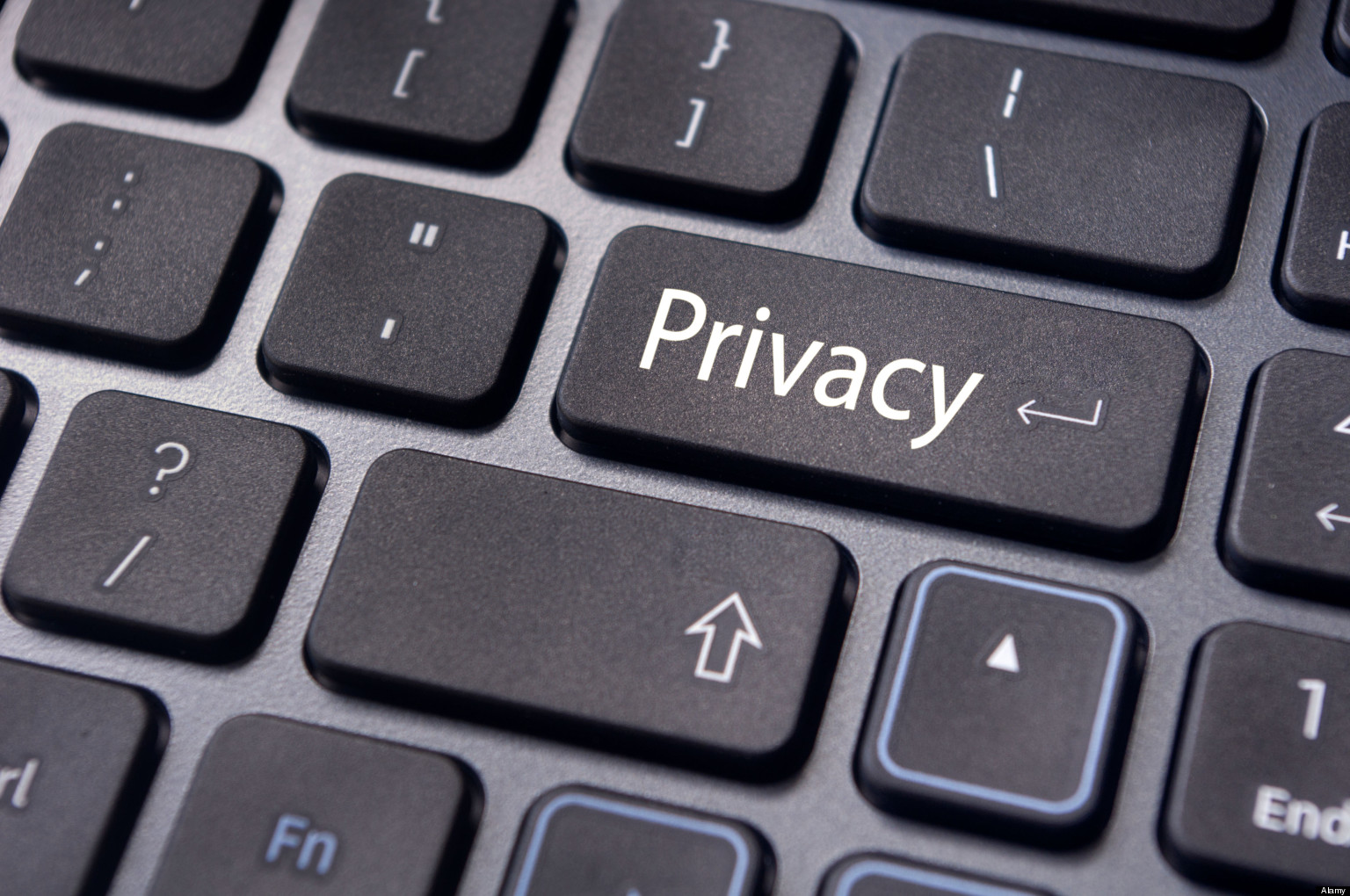Internet Era: Privacy in Exchange to Safety?
(Image source: http://www.huffingtonpost.com/larry-keating/internet-data-privacy_b_2562196.html)
– Anamaria-Mitina Mihaita (LLB Law, Newcastle University) mihaita_ana@yahoo.com
Nowadays technology has become an important part of people’s lives. Activities such as banking, shopping and even human interactions depend more and more on the internet. Within virtual life, individuals’ rights and freedoms also become a virtual issue. Whilst the breach of virtual rights is not a primary issue for users, discussions about virtual privacy have gained weight after the USA spying scandal.
I am told that I am free but my freedom stops when someone else’s freedom starts. The principle of real life freedom seems clear, but when it comes to the internet the term becomes blurred. The main reason for this is the difficulty of drawing virtual boundaries on a free and open platform. New legislation and a detailed technological scheme are needed to ensure our right to keep private anything inside our virtual boundaries. This solution may, however, not be accepted by internet users as it includes costly infrastructure changes which may turn the internet into a limited payable platform. As a result of this, most users simply accept the government’s explanation that internet surveillance is necessary to protect ‘good citizens’ against terrorists. Good intentions and patriotism are mentioned everywhere to explain the privacy infringement taking place online. Once boosted, the government uses peoples’ deepest fears to justify itself and the extreme decisions it has taken. When in fact, the questions that each and every citizen should be asking are: ‘should we trade our privacy in exchange for safety? and is the system sufficiently designed to avoid abuse?
In response, the authorities have calmly stated that if you do not want something online, do not put it there. This is both logical and impossible at the same time. Nowadays, almost everything is monitored and done online, from banking transactions, to communication. Thus leaving it difficult for individuals to step out of the culture they grew up in and have grown accustomed to as the ‘real world’. Therefore it is submitted that the government’s response seems to be more of a fictional solution than a palpable one. The question remains what options do we have left? Trusting a system that has spied on us for decades without any previous notice does not seem a good option. Although intentions are good in nature, popular sayings note that the way to hell is full of good intentions. In a system where politics plays the most important role in security, the approach taken within the system could change at any moment. Jennifer Granick interestingly mentioned that the fear triggered by this scandal lays on the possibility of “bored analysts [who] do things like spy on women using surveillance cameras and listen to American GIs overseas having phone sex with their loved ones back home. Or an FBI agent may investigate strange but not unlawful emails on behalf of a family friend, leading to a sex scandal that brings down the Director of the CIA. These surveillance tools and information databases may one day end up in the hands of a J. Edgar Hoover and a President demanding embarrassing information about her political opponents, information that, in an age of mass surveillance, the government most assuredly will have somewhere in its treasure trove.”
To conclude, the solution to this situation is not an easy one. In order to protect internet privacy, users and internet suppliers have to request real boundaries on surveillance. However, the effect of these requests may come at a cost. The ‘price of virtual privacy’ may indeed result in a charge from internet suppliers or an independent controlling body to ensure that private information remains private if no suspicion is in place.
